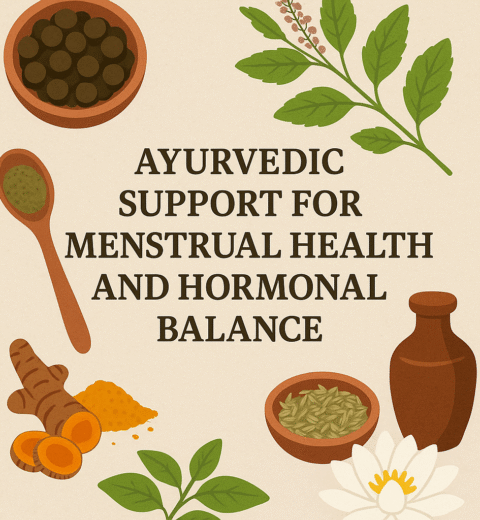Ayurveda, known as the “Science of Life,” is a holistic healing system that originated in India over 5,000 years ago. It emphasizes a balance between the body, mind, and environment to promote health and prevent disease. Despite its long history and growing global popularity, Ayurveda is often misunderstood. Many myths and misconceptions cloud people’s understanding, sometimes discouraging them from exploring its full benefits.
At Vaidhakim — a trusted platform connecting you to certified Ayurvedic doctors — we want to help clear the air. Here are the top 5 myths about Ayurveda, debunked with insights from expert practitioners to help you make informed health decisions.
Myth 1: Ayurveda Is Just About Taking Herbal Medicine
The Truth:
This is one of the biggest misconceptions. Ayurveda is a complete lifestyle science that includes a personalized diet, daily and seasonal routines (Dinacharya and Ritucharya), yoga, meditation, detoxification methods like Panchakarma, and mental wellness practices. Herbal medicines form an important part of Ayurveda, but they are only one component of a much broader system.
Ayurveda aims to treat the root cause of imbalance, not just symptoms. For example, if you experience chronic digestive issues, Ayurveda may recommend dietary changes, stress management techniques, herbal formulations, and lifestyle adjustments rather than just prescribing herbs.
Vaidhakim’s experts provide comprehensive, personalized treatment plans that go beyond pills — addressing your constitution (Prakriti), current imbalances (Vikriti), and lifestyle for sustainable health.
Myth 2: Ayurveda Is Only Suitable for Minor or Chronic Conditions, Not Serious Illnesses
The Truth:
While Ayurveda is widely recognized for effectively managing chronic conditions like arthritis, skin disorders, digestive issues, and stress-related problems, its scope extends beyond minor ailments. Ayurvedic therapies are used to support patients with metabolic disorders, autoimmune diseases, hormonal imbalances, and even some lifestyle-related cardiovascular and neurological conditions.
Ayurveda focuses on prevention and holistic healing, which can complement modern medical treatments. However, it’s crucial to consult experienced practitioners for serious illnesses to ensure safe, coordinated care.
At Vaidhakim, you can connect with certified Ayurvedic doctors who work in tandem with your healthcare providers to offer integrative and safe treatment approaches tailored to your needs.
Myth 3: Ayurveda Is Outdated and Not Based on Science
The Truth:
Though Ayurveda is ancient, it is far from outdated. It is based on systematic observation of nature, the human body, and mind over thousands of years. Many modern scientific studies now support the efficacy of Ayurvedic herbs and therapies, proving their benefits in areas such as anti-inflammation, digestion, immune support, and mental health.
Moreover, Ayurveda’s focus on individualized treatment, where interventions are tailored to a person’s dosha (body constitution), lifestyle, and environment, aligns with modern precision medicine trends.
Vaidhakim’s Ayurvedic doctors blend traditional wisdom with current scientific understanding to provide safe, evidence-informed treatments suitable for today’s health challenges.
Myth 4: Ayurveda Demands Strict and Difficult Diet Restrictions
The Truth:
Contrary to the belief that Ayurveda imposes harsh dietary rules, Ayurvedic nutrition is actually flexible, balanced, and personalized. The core idea is to eat according to your dosha type, current health, and the season, favoring fresh, whole, and easily digestible foods. Ayurveda encourages mindful eating and balance among the six tastes (sweet, sour, salty, bitter, pungent, and astringent).
Rather than forbidding entire food groups, Ayurveda guides you to make choices that support your unique constitution. For instance, a Kapha type might reduce heavy and oily foods, while a Vata type would benefit from warm, nourishing meals.
At Vaidhakim, expert doctors provide customized diet plans that fit your lifestyle, preferences, and health goals, making Ayurvedic nutrition practical and enjoyable.
Myth 5: Ayurvedic Treatments Take Too Long to Show Results
The Truth:
Ayurveda emphasizes long-term balance and prevention, which means some treatments focus on sustained lifestyle changes rather than quick fixes. However, many Ayurvedic therapies produce noticeable benefits in a short time — such as improved digestion, reduced stress, better sleep, and clearer skin.
Chronic or complex conditions may require longer-term care, but this approach supports deep healing and prevents recurrence.
Vaidhakim’s practitioners closely monitor your progress and adjust therapies to optimize results efficiently and safely, ensuring you feel improvements as soon as possible.
Why Trust Vaidhakim for Authentic Ayurvedic Care?
Navigating Ayurveda without expert guidance can be overwhelming, and misinformation is rampant. Vaidhakim.com bridges this gap by connecting you with certified Ayurvedic doctors who provide:
- Comprehensive health assessments
- Personalized treatment and diet plans
- Authentic herbal medicines delivered to your doorstep
- Safe and evidence-informed therapies
Whether you want to explore Ayurveda for general wellness, chronic disease management, or specific concerns like skin or hair health, Vaidhakim offers trustworthy, convenient access to expert care from anywhere.
Final Thoughts
Ayurveda’s holistic and individualized approach offers profound benefits — but only when understood and practiced correctly. By debunking these myths, you can confidently explore Ayurveda’s rich healing traditions.
Ready to experience authentic Ayurvedic care? Visit Vaidhakim today to consult certified experts and start your journey toward balanced health and well-being.





